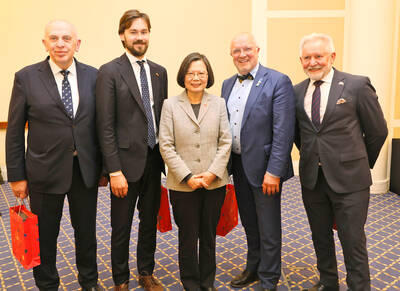Conduct an online search for information about parasitic prevalence in Swaziland, and very few results are likely to turn up.
Parasitic infections defined by the WHO as “neglected tropical diseases” are often left out when the public health agenda is formulated in the country that has the world’s most severe HIV/AIDS and tuberculosis (TB) epidemics. And yet, this type of infection could soon become the nation’s most serious health challenge.
According to the WHO Country Cooperation Strategy (CCS) for Swaziland 2008-2013, which crystallizes the major reforms adopted by the international health body with a view to intensifying its intervention in the country during the period, “non-communicable diseases have received inadequate attention, given the serious double of disease that prevails in the country,” refereeing to HIV/AIDS and TB.
“Available resources are disproportionately allocated to the responses to HIV and AIDS compared with other diseases such as non-communicable diseases,” it said.
Parasite infection was not even an issue addressed by the WHO in the CCS report.
It was this lack of attention to the disease internationally that prompted Fan Chia-kwung (范家堃), chairman of the department of parasitology of Taipei Medical University (TMU), to devote himself to highlighting the problem in Swaziland and other developing countries — such as Sao Tome and Principe, one of Taiwan’s four diplomatic allies in Africa — facing similar challenges.
“Parasite infection has gone unnoticed because it will not cause death like HIV, TB or malaria will, coupled with the fact that the disease mainly occurs in people living in rural, impoverished areas whose feeble voices are barely heard by the authorities,” Fan said.
“Parasite infection, however, is very easy to cure. Effective medication for the disease is available and it is cheap,” said Fan, who teaches molecular and immunopathological parasitology.
“Leaving the disease untreated will lead to breadwinners being unable to work, aggravating a vicious cycle of poverty, while in children it can cause retardation, epilepsy and other symptoms. Many social problems ensue. Curing a person infected with parasites can solve many problems,” he said.
At the suggestion of Fan, TMU, which joined Taiwan’s medical mission in Swaziland in December 2008, conducted an epidemiological investigation on the status of parasite infection in Swaziland to understand its endemic parasitic conditions and to design a blueprint for treatment.
A group of five parasitology specialists led by Fan conducted several surveys in different slums in Swaziland in July and August last year.
This year, the team continued to survey the status of various parasitic infections among schoolchildren in two elementary schools in the Manzini and Hhohho regions of Swaziland.
As the sole external group dedicated to parasitic infection in Swaziland, the TMU team’s findings have not only drawn the attention of the Swazi government to the problem, but has also thrust the matter onto the global stage.
Daniel Lu (盧道揚), Taiwan’s resident representative in Africa, said the Swazi Ministry of Health and Social Welfare (MOHSW) took the matter up with the WHO after it received the TMU’s research reports.
A developing country whose climate and living conditions favor many parasites, Swaziland had little or no information on the prevalence of parasites before the Taiwanese team carried out the investigation.
Fan said the TMU team had identified Entamoeba histolytica and Giardia lamblia — both intestinal parasitic diseases — as the most common parasites in Swaziland.
Before the study, the Swazi government had not even been aware of the presence of Entamoeba histolytica in the country.
The team also introduced a technique known as merthiolate-iodine-formalin (MIF) — which looks for the presence of helminth ova, one of the main targeted pathogens in the new guidelines for water reuse in agriculture and aquaculture, and protozoan cyst in stool samples — to determine the level of infection of the two intestinal parasitic diseases.
Through this, the team was able to determine that the Kato-Katz technique —a laboratory method for preparing human stool samples prior to searching for parasite eggs — used by the ministry at the recommendation of the WHO, “was not sensitive enough to detect cysts and trophozoites.”
Hosea Sukati, head of the Swazi Clinical Laboratories and Blood Transfusion, has considered dropping the Kato-Katz technique and using the MIF technique instead to increase the detection rate, Fan said.
The choice of methods for the detection of parasites is important in designing an effective de-worming program, especially in a country whose health system faces persistent challenges in terms of inadequate human resources, outdated or simply unavailable health information.
Fan’s research on the seroprevalence of Toxocara canis (T. canis, a parasite transmissible from animals to humans) infection among children is a case in point.
In a research paper published in the Annals of Tropical Medicine and Parasitology, Fan said he chose “western blotting” rather than the less specific TcES-ELISA as a technique to detect T. canis infection because “the specificity of TcES-ELISA is too low for such assays to be reliable when used in communities where several species of intestinal helminthes are common.”
The research found that T. canis infection was common among Swazi children living in rural slums, with almost one in every two subjects, or 44.6 percent, found seropositive, it said.
Previously, Swazi authorities had been unaware of the presence of T. canis in the country and had failed to link T. canis infection to epilepsy in children.
“Some [Swazi health] officials told me they did not know why some children had epilepsy. After I suggested they be administered albendazole [a drug used in the treatment of worm infection], they all recovered well without any relapse,” Fan said, adding that albendazole is a very common medicine that “can be found in any drugstore” in Africa.
“In parasite treatment, as long as the infection is detected, it can be cured easily and at very low cost,” Fan said.
Two other research projects conducted by the team also earned international acclaim after the findings were published in journals such as the Science Citation Index, often described as the world’s leading journal of science and technology.
One research paper that determines the seroprevalence of Toxoplasma gondii among Swazi children was also published in the Annals of Tropical Medicine and Parasitology.
The other paper on the prevalence of schistosomiasis haematobium among residents of remote districts devoid of sanitation was published in Tropical Biomedicine.
Of a total of 22 neglected tropical diseases as defined by the WHO, 18 are caused by parasites, Fan said, adding that the TMU hoped to help Swazis address overlooked health issues and respond to an appeal by the WHO for further research on the little-known diseases.

Former president Tsai Ing-wen (蔡英文) on Monday called for greater cooperation between Taiwan, Lithuania and the EU to counter threats to information security, including attacks on undersea cables and other critical infrastructure. In a speech at Vilnius University in the Lithuanian capital, Tsai highlighted recent incidents in which vital undersea cables — essential for cross-border data transmission — were severed in the Taiwan Strait and the Baltic Sea over the past year. Taiwanese authorities suspect Chinese sabotage in the incidents near Taiwan’s waters, while EU leaders have said Russia is the likely culprit behind similar breaches in the Baltic. “Taiwan and our European

The Taipei District Court sentenced babysitters Liu Tsai-hsuan (劉彩萱) and Liu Jou-lin (劉若琳) to life and 18 years in prison respectively today for causing the death of a one-year-old boy in December 2023. The Taipei District Prosecutors’ Office said that Liu Tsai-hsuan was entrusted with the care of a one-year-old boy, nicknamed Kai Kai (剴剴), in August 2023 by the Child Welfare League Foundation. From Sept. 1 to Dec. 23 that year, she and her sister Liu Jou-lin allegedly committed acts of abuse against the boy, who was rushed to the hospital with severe injuries on Dec. 24, 2023, but did not

LIKE-MINDED COUNTRIES: Despite the threats from outside, Taiwan and Lithuania thrived and developed their economies, former president Tsai Ing-wen said Former president Tsai Ing-wen (蔡英文) on Saturday thanked Lithuania for its support of Taiwan, saying that both countries are united as partners in defending democracy. Speaking at a reception organized by the Lithuania-Taiwan Parliamentary Friendship Group welcoming her on her first visit to the Baltic state, Tsai said that while she was president from 2016 to last year, many Lithuanian “friends” visited Taiwan. “And I told myself I have to be here. I am very happy that I am here, a wonderful country and wonderful people,” Tsai said. Taiwan and Lithuania are in similar situations as both are neighbors to authoritarian countries, she

Former president Tsai Ing-wen (蔡英文) is to visit the UK during her ongoing European trip, which originally included only Lithuania and Denmark, her office said today. Tsai departed Taiwan for Europe on Friday night, with planned stops in Lithuania and Denmark, marking her second visit to the continent since her two-term presidency ended in May last year. Her office issued a statement today saying that Tsai would also visit the UK "for a few days," during which she is to meet with UK politicians and Taiwanese professionals, and visit academic and research institutions. Following Tsai's stop in Denmark, she is to visit the